Comet Pan-STARRS of 2013: Photos and Sky Maps for Stargazers
Comets Lemmon and Pan-STARRS Together at Last
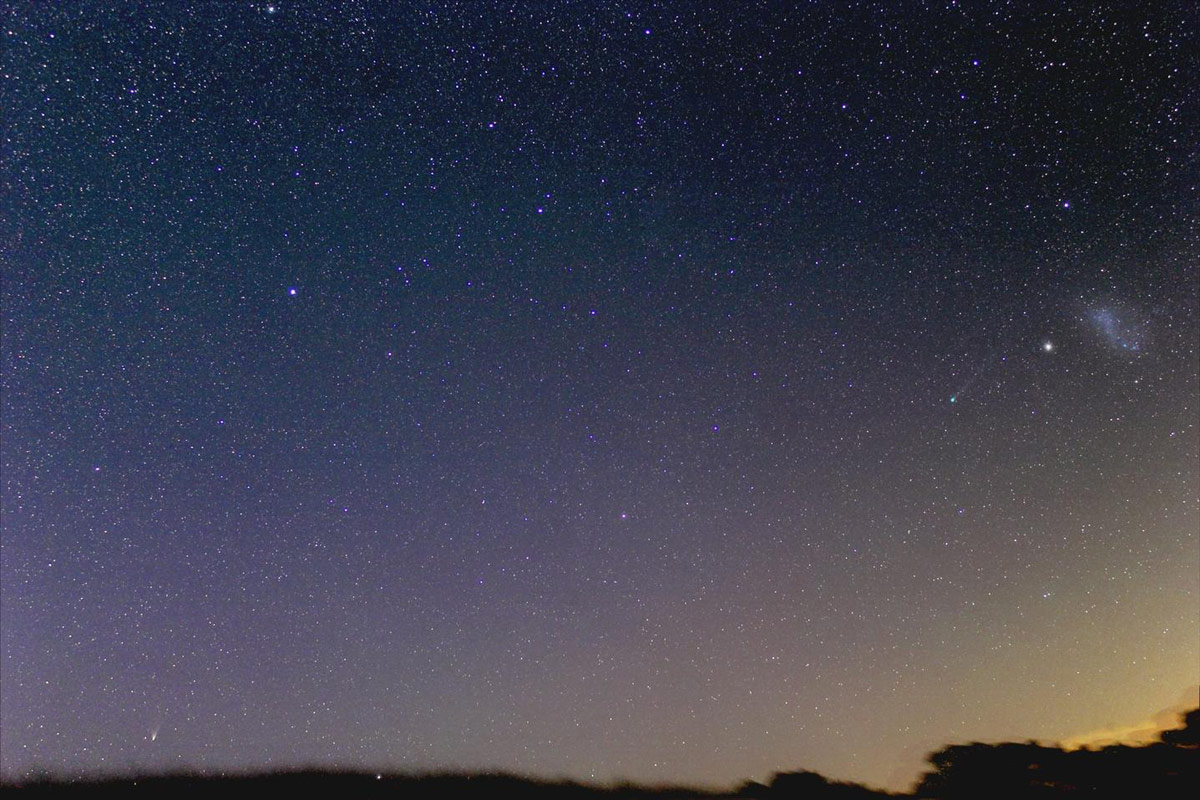
Astrophotographer Justin Tilbrook of Penwortham, South Australia, caught this photo of Comets Lemmon (bottom left) and Pan-STARRS (right near the Small Magellanic Cloud) together on Feb. 17. 2013. He writes: "This is the one I've been waiting for…. Don't mind saying it was difficult to set this up, a narrow window before sunrise, 4 degrees of hill in the way, limitations with the dome slit and having to mount the camera at the front of the scope at a very odd angle. Took about an hour."
Comet Pan-STARRS Seen in Buenos Aires
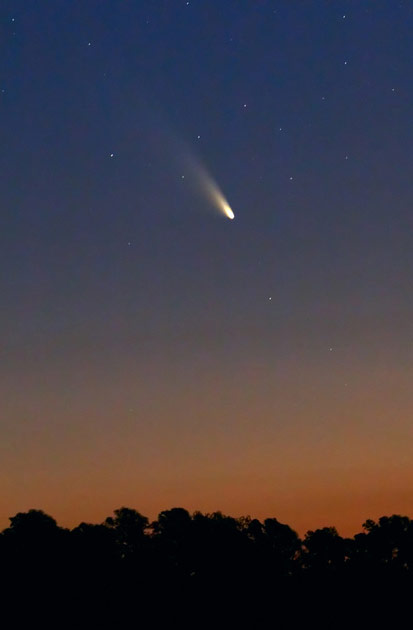
Astrophotographer Luis Argerich of Buenos Aires, Argentina, took this photo of Comet Pan-STARRS taken on March 2, 2013. He writes: "While the tail was still short it was easy to see with the naked eye and very bright."
Comet Pan-STARRS Night Sky Path: 2013
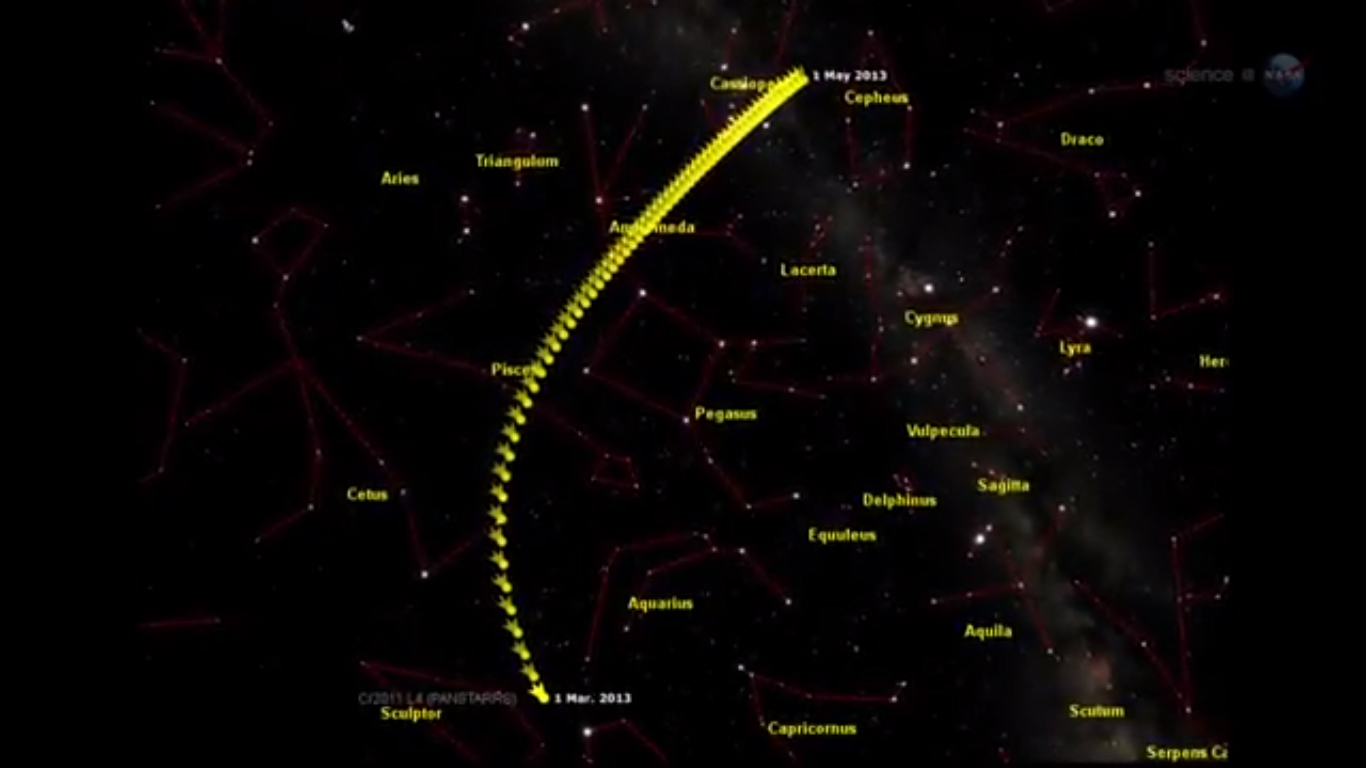
This graphic depicts the path of comet Pan-STARRS across the night sky from March to May in 2013.
Comet Pan-STARRS View from Australia
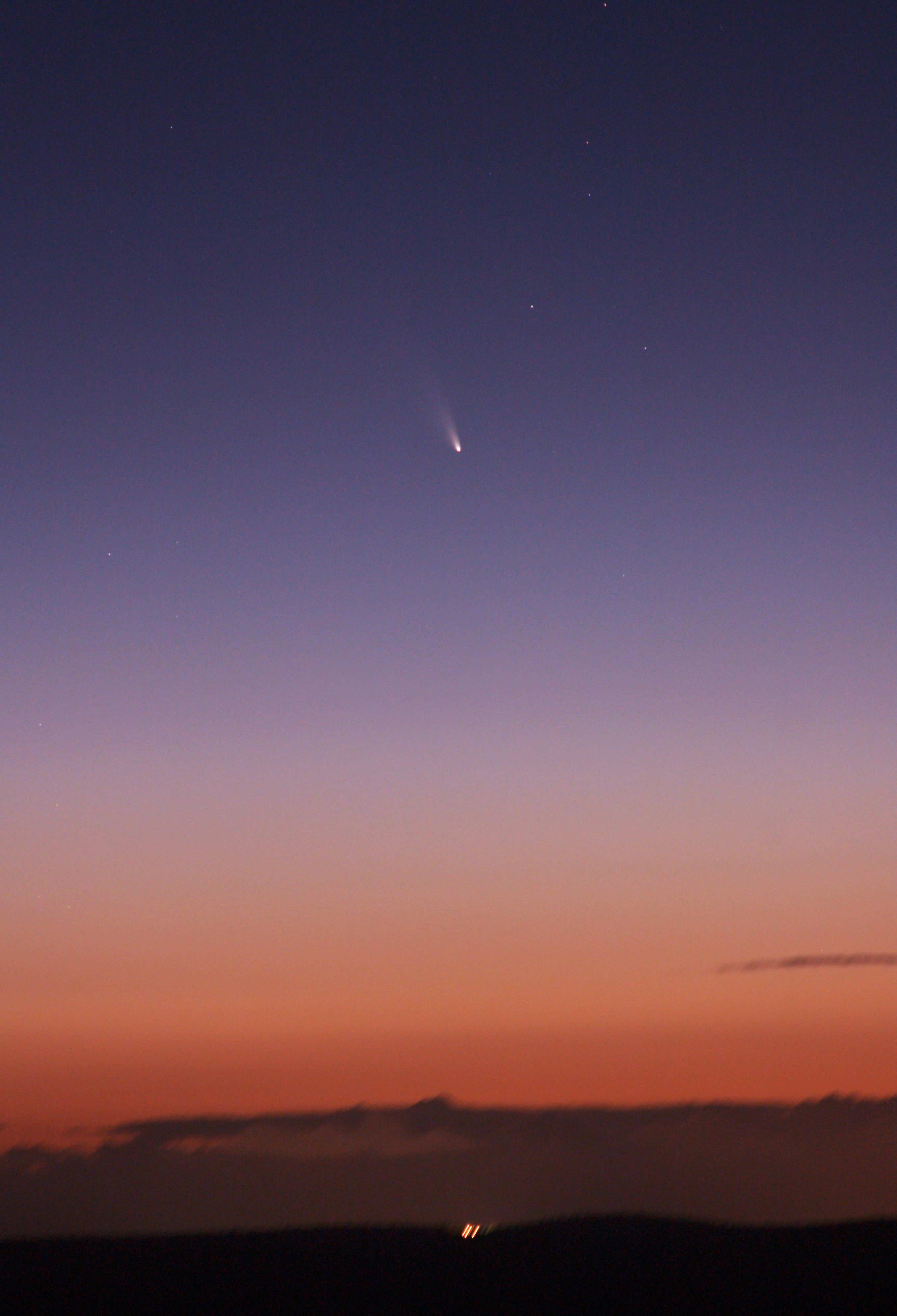
Full view of Comet C/2011 L4 PANSTARRS as seen from Mount Dale, Western Australia. The lights on the distant horizon are from the city of Armadale, which is southeast of Perth.
Comet Pan-STARRS Photo by John Drummond: January 2013
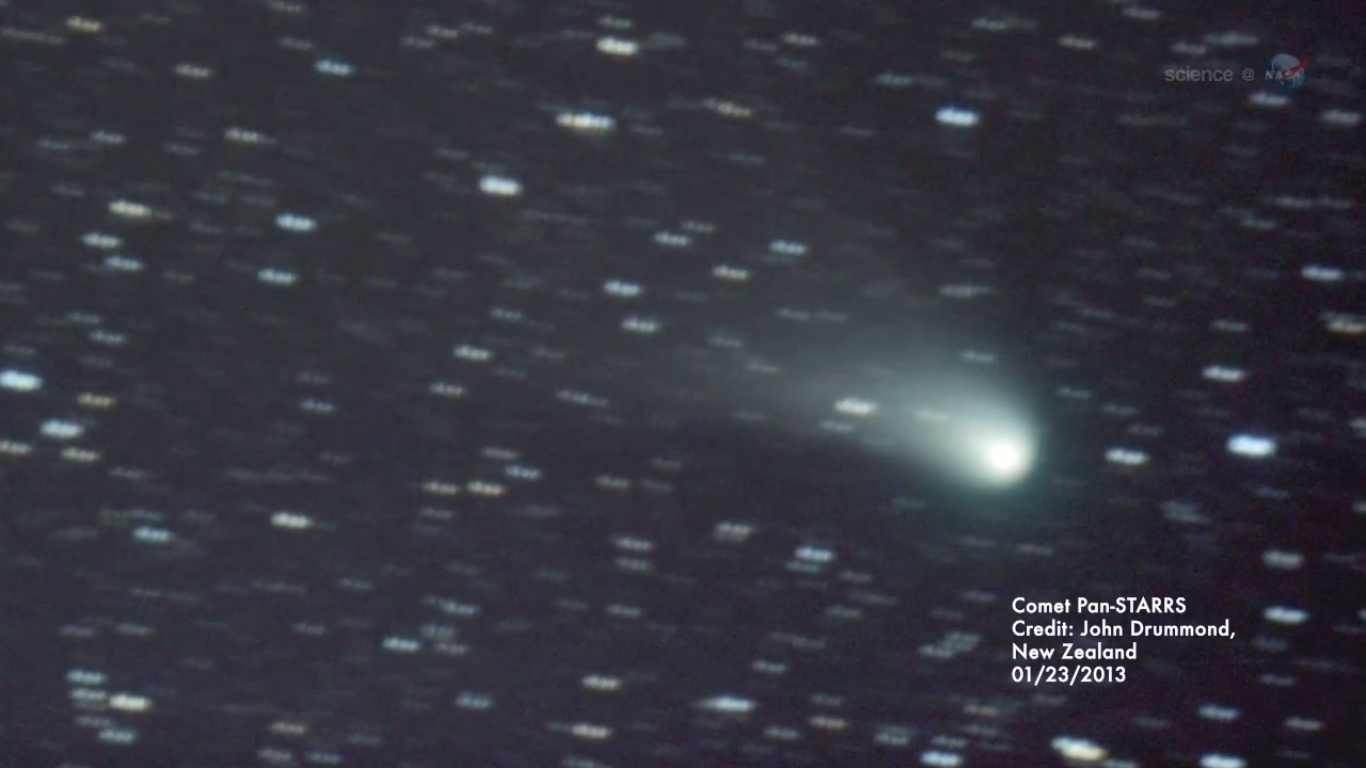
New Zealand stargazer John Drummond captured this image of comet Pan-STARRS on Jan. 23, 2013. The comet may become visible to the naked eye in March 2013.
Comet Pan-STARRS Telescope Photo
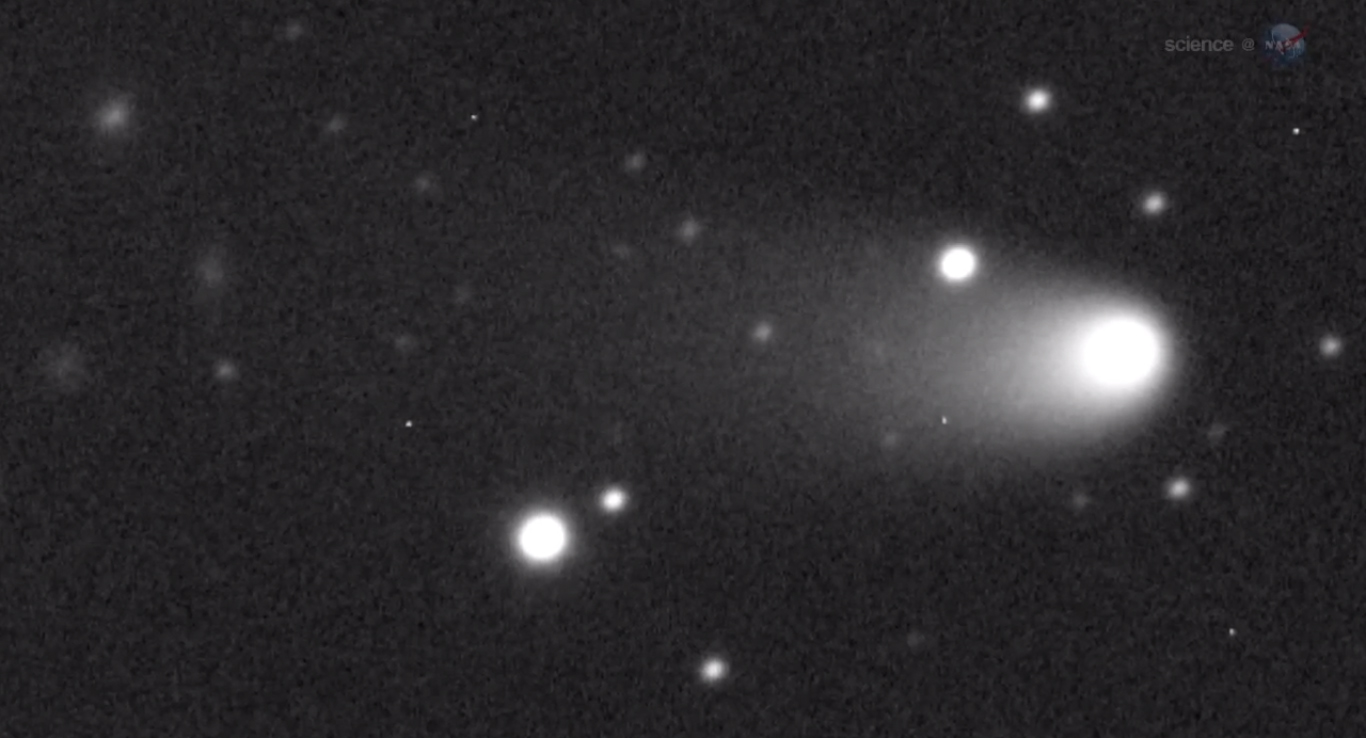
A telescope photo of comet Pan-STARRS, which may become visible to the naked eye in March 2013.
Comet C/2011 L4 (PANSTARRS) Discovered by Asteroid Telescope
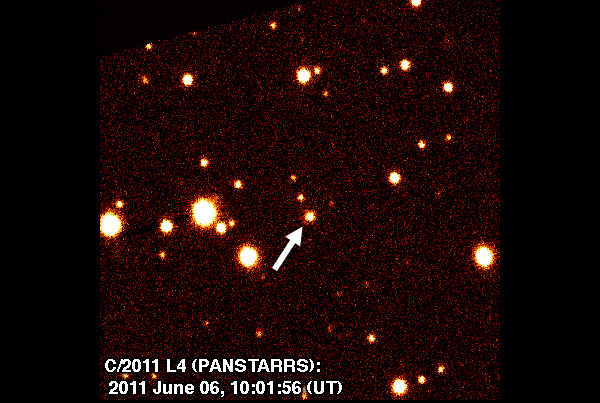
Discovery image of the newfound comet C/2011 L4 (PANSTARRS), taken by Hawaii's Pan-STARRS 1 telescope.
Get the Space.com Newsletter
Breaking space news, the latest updates on rocket launches, skywatching events and more!
Comet Pan-STARRS Photo and Telescope
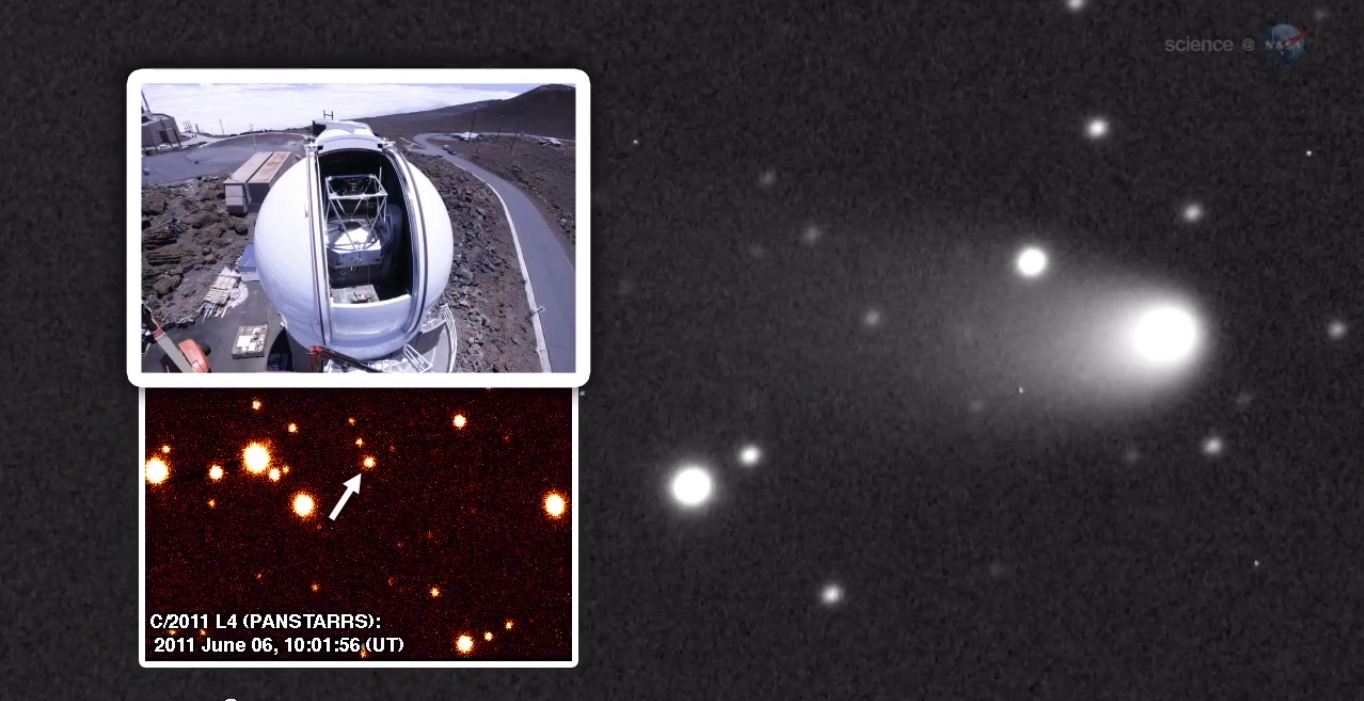
This still image from a NASA video shows a black and white view of comet Pan-STARRS (background), as well as an image of the comet's discovery photo (inset bottom) and the Panoramic Survey Telescope & Rapid Response System (Pan-STARRS) Telescope in Hawaii that spotted the comet in June 2011.
Comet Pan-STARRS on March 5, 2013
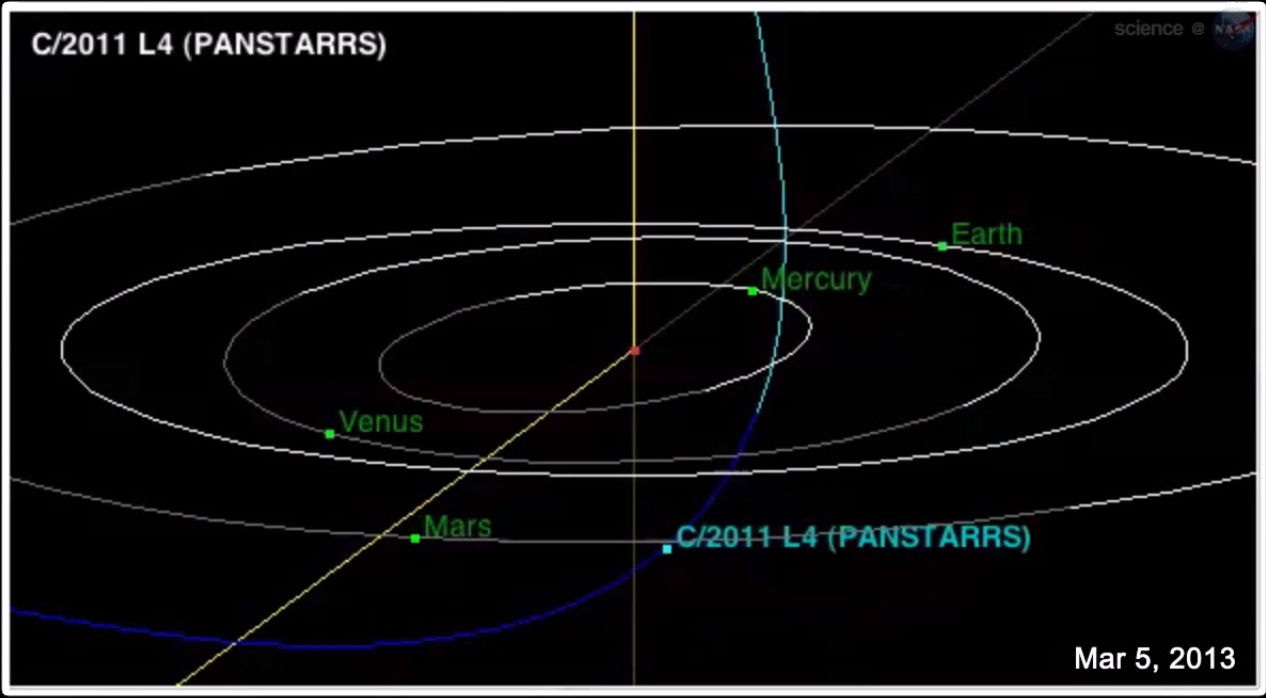
This NASA diagram shows the location in the solar system of comet Pan-STARRS, also known as comet C/2011 L4 (PANSTARRS), as it will be on March 5, 2013, when the comet will be closest to Earth - about 100 million miles away.
Comet Pan-STARRS on March 10, 2013
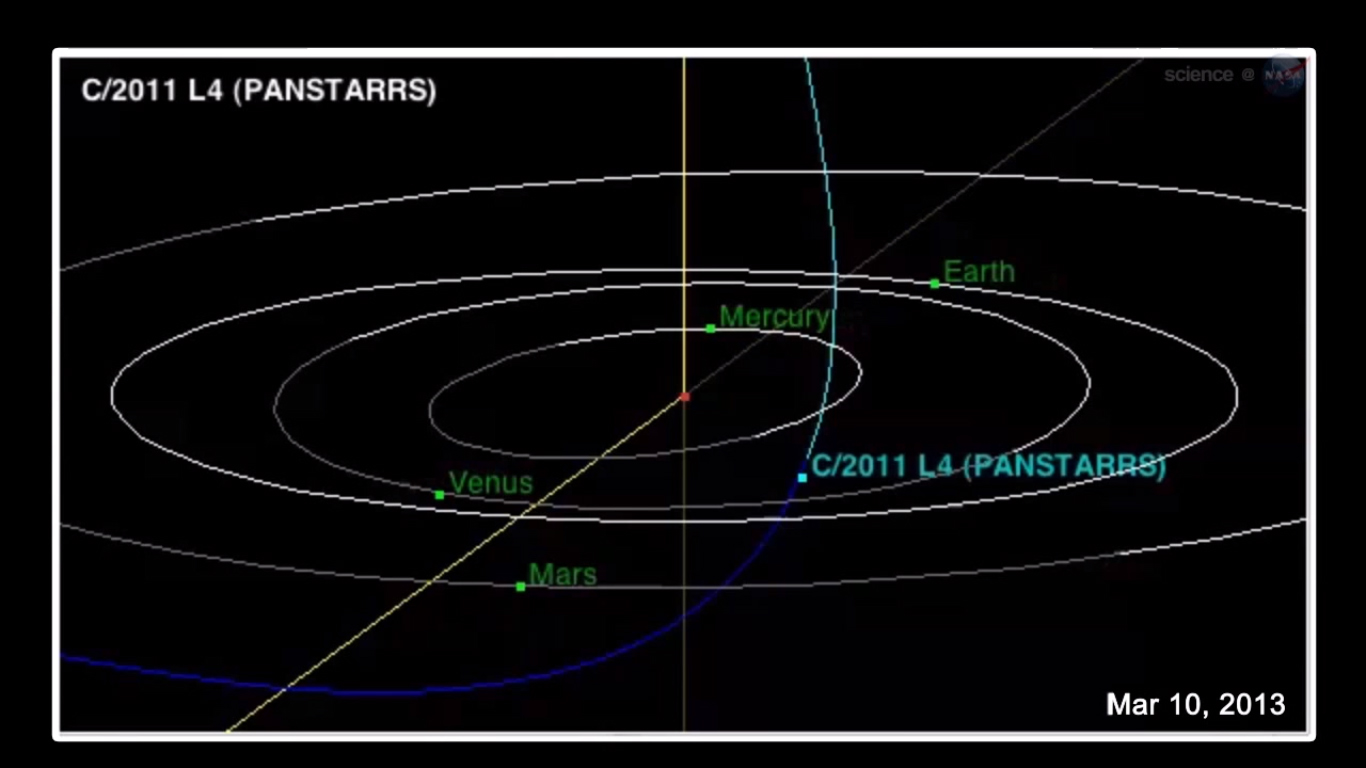
This NASA diagram shows the location in the solar system of comet Pan-STARRS, also known as comet C/2011 L4 (PANSTARRS), as it will be on March 10, 2013, when the comet is closest to the sun.
Join our Space Forums to keep talking space on the latest missions, night sky and more! And if you have a news tip, correction or comment, let us know at: community@space.com.

Tariq is the Editor-in-Chief of Space.com and joined the team in 2001, first as an intern and staff writer, and later as an editor. He covers human spaceflight, exploration and space science, as well as skywatching and entertainment. He became Space.com's Managing Editor in 2009 and Editor-in-Chief in 2019. Before joining Space.com, Tariq was a staff reporter for The Los Angeles Times covering education and city beats in La Habra, Fullerton and Huntington Beach. In October 2022, Tariq received the Harry Kolcum Award for excellence in space reporting from the National Space Club Florida Committee. He is also an Eagle Scout (yes, he has the Space Exploration merit badge) and went to Space Camp four times as a kid and a fifth time as an adult. He has journalism degrees from the University of Southern California and New York University. You can find Tariq at Space.com and as the co-host to the This Week In Space podcast with space historian Rod Pyle on the TWiT network. To see his latest project, you can follow Tariq on Twitter @tariqjmalik.









